The draft Decree regulating salary and allowance policies for teachers has just been announced by the Ministry of Education and Training and has attracted much attention from teachers. According to this draft Decree, all teachers are entitled to a "special salary coefficient".
On the evening of November 5, the Ministry of Education and Training said that this is a necessary regulation to realize the policy of "teachers' salaries being ranked highest in the administrative career salary scale system".
According to the Ministry of Education and Training, in reality, teachers' salaries are not ranked highest in the administrative career salary scale system, and the majority of teachers are even on a lower salary scale.
Like civil servants in other sectors, teachers' salaries are implemented according to Government regulations in Decree No. 204/2004 dated December 14, 2004 on salary regime for cadres, civil servants, public employees and armed forces.
Accordingly, teachers and civil servants in general are subject to the Professional and Technical Salary Table for cadres and civil servants in State-owned enterprises (Table 3), and receive a starting salary corresponding to the training level requirements (type B for intermediate level, type A0 for college level, types A1, A2, A3 for university level and above).
Table 3 has 10 salary scales arranged in order from low to high, corresponding to scale 1 to scale 10 as C1, C2, C3, B, A0, A1, A2.2, A2.1, A3.2, A3.1. In these 10 salary scales, currently only 3 teacher titles are applied with the salary of type A3 civil servants: senior university lecturer, senior vocational education lecturer, senior vocational education teacher, accounting for about 1.17% of the total number of teachers. Meanwhile, this rate in other sectors and fields is about 10% of the total number of civil servants in the sector and field (senior titles).
The remaining senior teacher positions (grade I at preschool, general education, continuing education, and university preparatory levels) account for about 8.83% of the total number of teachers, and are only ranked at the salary of type A2 civil servants (equivalent to the title of senior civil servants in other sectors and fields).
Meanwhile, according to the current regulations on the duties of professional titles, the duties of all senior officials in general are similar to those of senior teachers (grade I), which are to develop documents and guide officials of lower grades; to act as judges, set questions or give instructions at competitions and contests; to be a pioneer group in developing and implementing innovation directions for the industry...
When reviewing and comparing the applied salary scales, it can be seen that the salaries of most teachers (except college and university lecturers, vocational education teachers) are ranked lower than those of civil servants in other sectors such as healthcare (doctors, pharmacists), construction (architects, accountants), transportation (road technicians, managers, construction maintenance), justice (resume staff), culture - sports (directors, actors, artists, coaches), science and technology (researchers, engineers), information and communication (reporters, translators, television directors)...
Except for university and college lecturers and vocational education teachers, teachers are also classified into 3-4 ranks (from rank IV to rank I), most of whom are receiving salaries from A0 - A1 - A2.2 - A2.1 (corresponding to salary scales 5 - 6 - 7 - 8) and are preschool, general education, university preparatory, and continuing education teachers (accounting for about 88% of the total number of teachers).

The salaries of most teachers are lower than those of civil servants in other sectors (Illustration photo)
According to the Ministry of Education and Training, the “special salary coefficient” is necessary when the new salary policy has not been issued. Accordingly, to implement the Law on Teachers, which will take effect on January 1, 2026, the Ministry of Education and Training is currently advising the Government to issue a Decree regulating salary policies and allowances for teachers. One of the prominent policies expected to be stipulated in this Decree is that all teachers will enjoy a “special salary coefficient”.
In particular, preschool teachers are entitled to a special salary coefficient of 1.25 compared to the current salary coefficient; other teaching positions are entitled to a special salary coefficient of 1.15 compared to the current salary coefficient. For teachers teaching at schools, classes for people with disabilities, centers to support the development of inclusive education, and boarding schools in border areas, an additional 0.05 is added to the prescribed level.
The special salary coefficient is calculated with the salary level and is not used to calculate the allowance level with the following salary calculation formula:
Salary effective from January 1, 2026 = Basic salary x Current salary coefficient x Specific salary coefficient
The issue of teachers' salaries can only be fundamentally resolved when the Government issues a new salary policy and reorganizes the salary scale of teachers and other civil servants. However, in the context that the Government has not yet issued a new salary policy, it is necessary to issue regulations on specific salary coefficients (as the draft Decree regulating salary policy and allowance regime for teachers is expected).
Although the special salary coefficient does not help teachers' salaries to be ranked 'highest', it will help teachers' salaries to be ranked 'higher' than those of civil servants with the same applicable salary scale. The teaching staff nationwide looks forward to the consensus of competent authorities on the regulation of "special salary coefficient" to gradually resolve the shortcomings of the current salary scale system, and at the same time implement the policy of "teachers' salaries being the highest in the administrative career salary scale system".
Source: https://vtcnews.vn/bo-gd-dt-luong-cua-hau-het-giao-vien-dang-thap-hon-cac-nganh-khac-ar985408.html





![[Photo] Closing of the 14th Conference of the 13th Party Central Committee](https://vphoto.vietnam.vn/thumb/1200x675/vietnam/resource/IMAGE/2025/11/06/1762404919012_a1-bnd-5975-5183-jpg.webp)

![[Photo] Prime Minister Pham Minh Chinh receives the delegation of the Semiconductor Manufacturing International (SEMI)](https://vphoto.vietnam.vn/thumb/1200x675/vietnam/resource/IMAGE/2025/11/06/1762434628831_dsc-0219-jpg.webp)








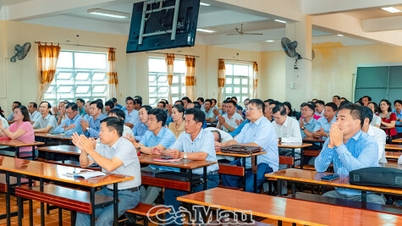








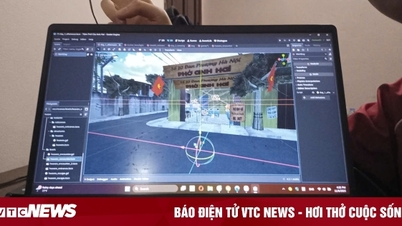


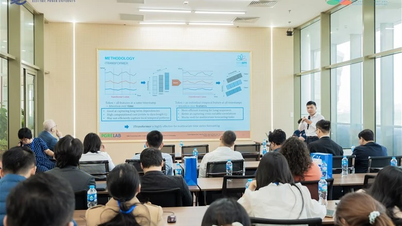
















































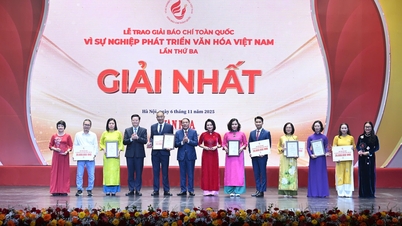


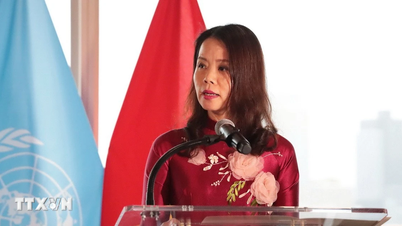











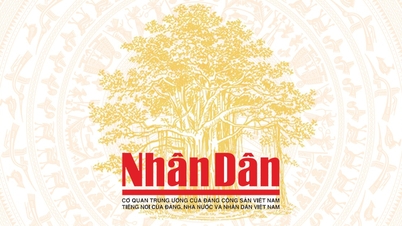





















Comment (0)